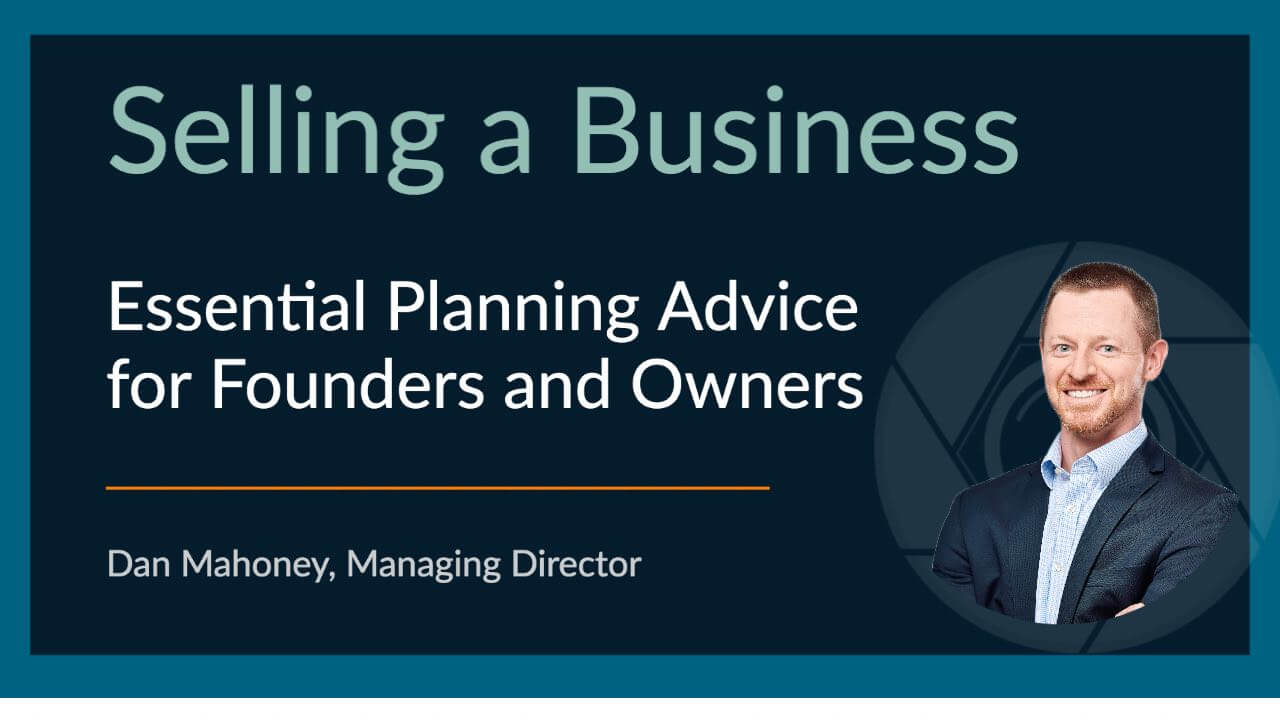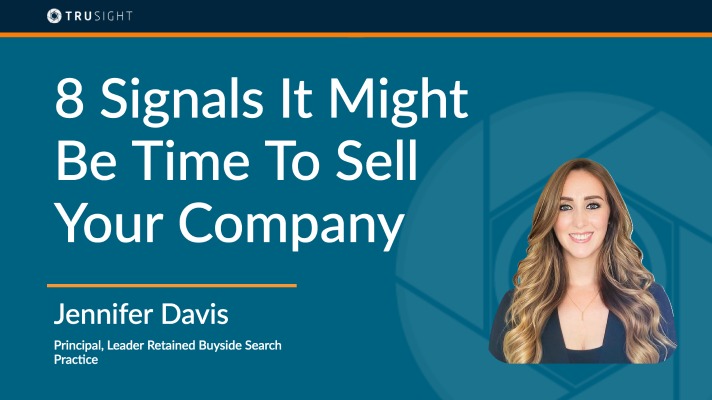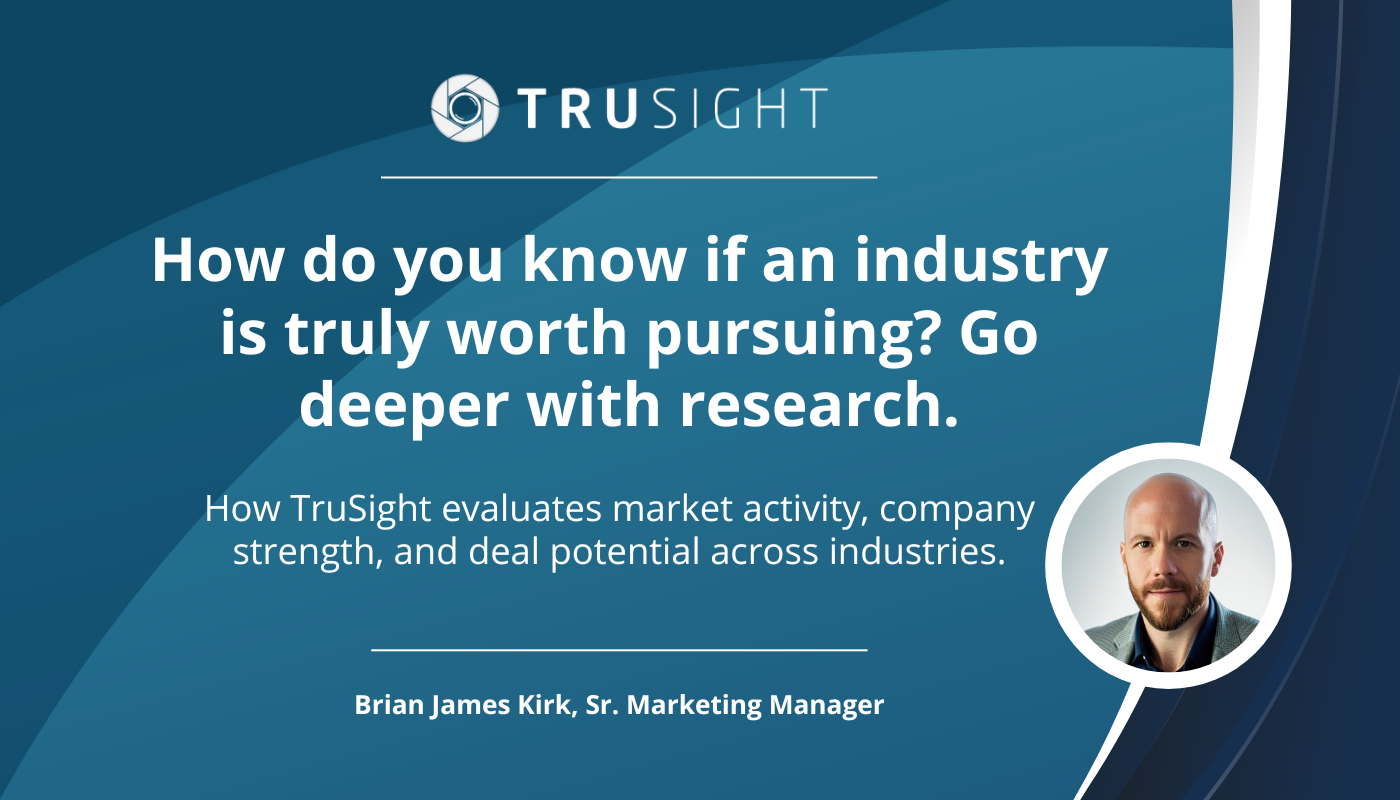If you are considering selling your business, this article provides essential advice and guidance on how to approach the process and the key steps that need to be taken to ensure a successful sale.
Why Sell Your Company?
A clear and concise answer to this question will allow business advisors and buyers to understand the motivation behind pursuing a successful transaction. For most business owners, the simple answer to this question is succession planning. In some cases, no family members are working in the company to transition the ownership, nor is a management team capable or interested in taking over the reins. Retirement, health concerns, and diversifying owner net worth are common reasons.
When to sell your business?
Timing a market is notoriously tricky. The preparation time required to drive a successful transaction process can often take months and sometimes years. For the latter, business owners may consider working to diversify customers and suppliers, driving profitability rather than reinvesting every free dollar back into the business. Gathering requisite financial records, tax returns, and company-specific operating metrics also factor into additional preparation time.
Financial Records and Business Analysis
It's a best practice to gather financial statements and tax returns for the prior three years and provide an outlook for the next fiscal year. This information allows buyers to identify trends in the company, potential pitfalls, and customer concentration concerns. Simply put, the more diverse your customer base, the more stable your business will be to prospective buyers, giving them additional confidence in pursuing a deal. Often, CPAs are a great resource to pull this information together in an organized fashion to present to potential buyers. Metrics like monthly recurring revenue (MRR), gross margin and net income margin, capital expenditures, and EBITDA calculations all play a part in evaluating a company's financial strength. While EBITDA is the most common valuation metric, it is not the only factor considered for a buyer to place a range of values on a business. ,
How Much Is My Business Worth?
How to Value a Private Company Most financial and strategic buyers will use multiple EBITDA to establish a range of values to apply to your business. These multiples vary somewhat by industry but are a good starting point to use as a proxy for total enterprise value. Trends are used to establish a fair deal – you would value Company A differently than Company B if EBITDA is trending downward versus upward over the prior years. Is one customer driving top-line growth and profits? Are you only growing top-line revenue through acquisition, or are you growing by gaining new customers and market share? An experienced CPA, business broker, or investment banker can help you and your accounting teams make sense of all that goes into valuing your company. Other standard valuation methods include discounted cash flow analysis, comparable transaction analysis, and traditional accounting methods such as book value and equity value.
How to Identify Potential Buyers for Your Company
Identifying who may want to purchase your business is a significant hurdle in completing a transaction promptly and fairly. An experienced M&A advisor can help research financial and strategic buyers, ensuring a match for your business characteristics (size, industry, location, preferred transaction type – buyout, recapitalization, minority or expansion capital), with prospective buyer investment criteria. They will also have good connections and know whom to speak with at those companies to ensure timely and interested responses in the initial marketing phase of pursuing a transaction.
Round Out Your Team
Business owners can help ensure a smoother process by having the right team around them to run the operation. Frequently, an M&A advisor can assist in all phases of marketing and completing transactions. Still, having a CPA and attorney retained with experience in mergers and acquisitions is also helpful. The cousin's neighbor's attorney, that focuses on real estate deals, is unlikely to be the best answer when negotiating an asset versus stock deal structure in the asset purchase agreement. Another resource is beginning conversations with a private wealth firm to ensure you know what to do with proceeds from the deal and, working with your attorney, ensure to limit the tax liabilities to the best of your ability.
How Long Does It Take To Sell a Business or Company?
There's a saying that "time kills deals." What people mean by this is the longer a process drags along, the more likely hiccups will arise, and the buyers may become less interested. That's not to say you should rush the process by any means. Instead, follow the steps above to ensure you prepare to interact promptly and professionally with prospective buyers. Solid answers to the "why are you selling?" and "what are your goals of a transaction?" along with organized financial and customer data, go a long way to providing a relatively smooth process as buyers conduct due diligence on your business. Ultimately, the decision lies with a business's owner(s) whether to sell or not, as you can always turn down an offer from a buyer. However, these steps should best ensure you are at the table with a well-vetted buyer from the beginning.
A sale process can generally take anywhere from 6 months to many years, depending on where you are in the selling cycle. If you are early and just now considering selling, it may take quite a while to strengthen your company before pursuing a deal. However, if you have all your documents and records in good order and round out your team of advisors in advance, it can truncate that timing towards the lower end of the range.
TruSight, LLC works with business owners every day to assist in identifying prospective buyers for their companies and to ensure as smooth a transaction as possible. The buyers compensate us, and working with us comes at no cost to a business owner or their advisors. Our network of professional investors seeks to put capital to work across all industries throughout the United States and seek to buy companies valued between $5 million and $150 million.

%20-%20secta.ai.jpg?width=70&name=Dan%20Mahoney%20(1)%20-%20secta.ai.jpg)
.jpg)

